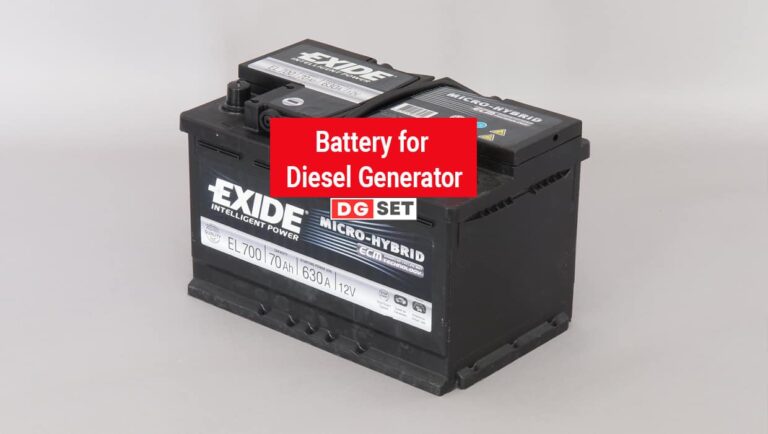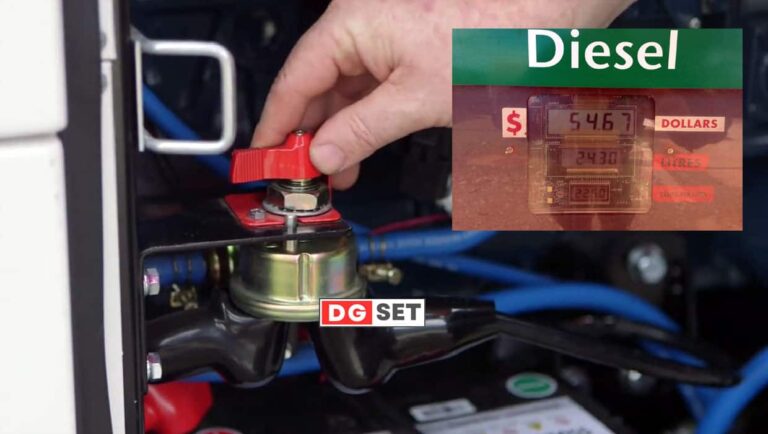Do Generators Use Batteries? Exploring the Types of Batteries Used in Generators
Exploring the world of generators, one question that often arises is whether generators themselves require batteries to operate. In this comprehensive article, we will delve into the topic of whether generators use batteries and shed light on the types of batteries commonly used in these essential power backup devices. By understanding the role of batteries in generators, we can gain a deeper insight into their functionality and ensure optimal performance when the need arises.
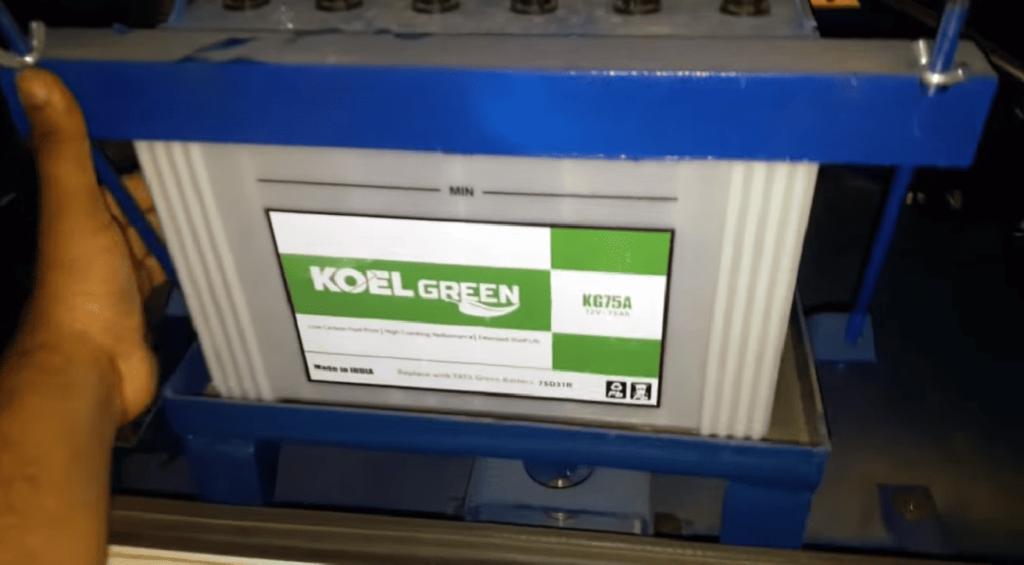
The Role of Batteries in Generators
Generators are primarily designed to provide a reliable power source when the main grid fails or in remote areas where electricity is unavailable. They consist of an engine that powers an alternator, which generates electrical energy. While the engine plays a critical role in the overall functioning of the generator, batteries have their own importance.
Starting the Generator
One crucial aspect of generators is their ability to start swiftly and efficiently. Batteries are essential for the initial startup process. They provide the necessary electrical energy to turn the engine's crankshaft, which sets the generator in motion. Without a battery, the generator would rely on alternative methods, such as manual pulling or external power sources, to initiate the startup sequence.
Control Panel and Electronics
Modern generators often feature a control panel and electronic components for enhanced functionality and ease of use. These components, including voltage regulators, monitoring systems, and automatic transfer switches, require a stable power supply to operate reliably. Batteries, typically located within the generator, ensure uninterrupted power for these control panel functions, enabling seamless monitoring and control.
What Kind of Battery Does a Generator Use
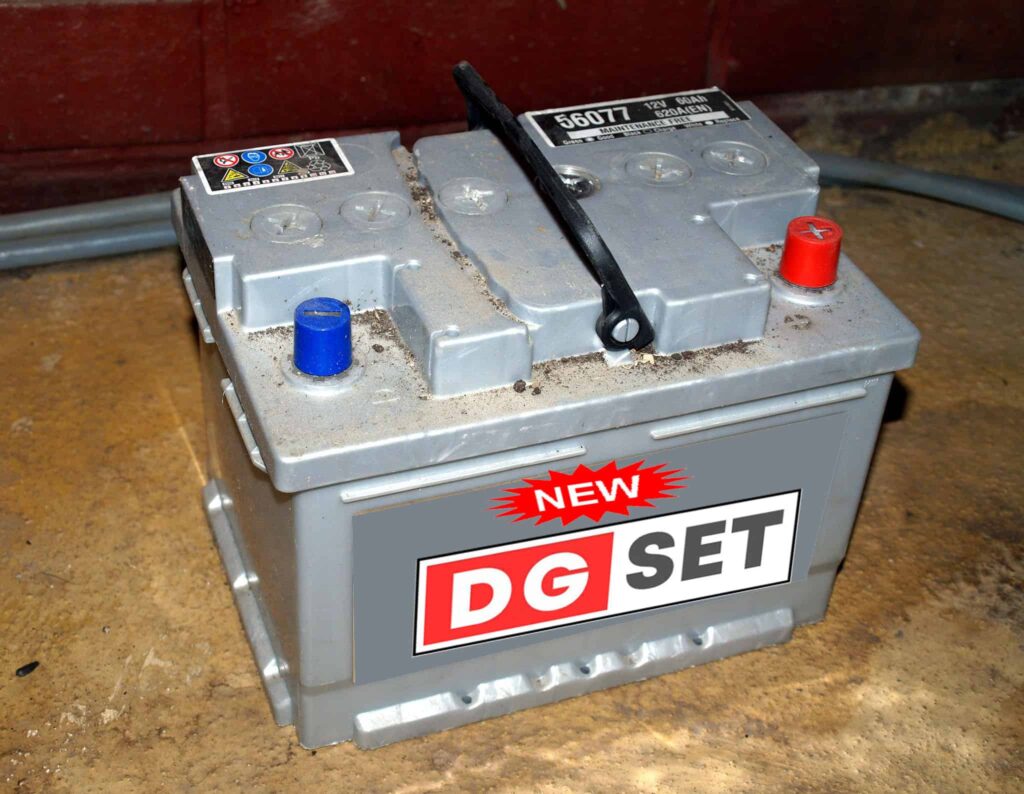
Generators employ different types of batteries, each offering unique advantages and considerations. Let's explore the most commonly used battery types in generators:
Lead-Acid Batteries
Lead-acid batteries are a popular choice for generators due to their affordability, wide availability, and proven track record. They consist of lead plates submerged in sulfuric acid electrolyte. Within the lead-acid category, there are two common variations:
a. Flooded Lead-Acid Batteries:
These traditional batteries feature vent caps and require periodic maintenance to check fluid levels and replenish distilled water. While cost-effective, they may not be the ideal choice for portable generators due to the risk of acid leakage.
b. Sealed Lead-Acid Batteries:
Sealed lead-acid batteries, also known as maintenance-free batteries, are sealed and do not require regular maintenance. They are highly reliable, offer excellent performance, and are a safer option for portable generators.
Lithium-Ion Batteries
Lithium-ion batteries have gained popularity in recent years due to their high energy density, lighter weight, and longer lifespan compared to lead-acid batteries. These batteries offer faster charging times, reduced self-discharge rates, and higher efficiency. However, they are typically more expensive than lead-acid batteries.
Lithium-ion batteries are an excellent choice for inverter generators, where lightweight and portability are significant considerations. They are also suitable for generators used in sensitive electronic applications, as they provide cleaner and more stable power output.
Generator Battery Specification:
When selecting a battery for a generator, it is important to consider the following specifications:
- Battery Type: The most common types used in generators are lead-acid batteries (flooded or sealed) and lithium-ion batteries.
- Voltage: The battery voltage should match the requirements of the generator. Common voltages include 12V, 24V, and 48V.
- Capacity: The battery capacity, measured in ampere-hours (Ah), indicates the amount of charge the battery can store. Higher capacity batteries provide longer backup power.
- CCA Rating: Cold Cranking Amps (CCA) is crucial for battery starting performance in cold weather conditions. Higher CCA ratings ensure reliable startup even in low temperatures.
- Reserve Capacity: Reserve capacity refers to the battery's ability to provide power continuously. It is typically measured in minutes and indicates how long the battery can power the generator under a specified load.
- Size and Dimensions: Ensure the battery size and dimensions are suitable for the generator's battery compartment or designated space.
- Terminal Type: Check the terminal type (e.g., top post, side post) to ensure compatibility with the generator's wiring and connection requirements.
- Maintenance: Consider whether you prefer a maintenance-free battery or one that requires periodic maintenance, such as checking fluid levels or adding distilled water.
Always refer to the generator manufacturer's specifications and guidelines to ensure you choose a battery that meets the specific requirements of your generator model.
Generator Battery Charger:
A generator battery charger is a device used to recharge the battery of a generator. It provides the necessary electrical current to replenish the battery's charge, ensuring it is ready for the next use. A generator battery charger should be compatible with the battery type and voltage of your generator to ensure safe and efficient charging.
Generator Battery Price:
The price of a generator battery can vary depending on factors such as the battery type, capacity, brand, and overall quality. Lead-acid batteries are generally more affordable compared to lithium-ion batteries. Additionally, factors like brand reputation and warranty coverage can also influence the price. It is recommended to research different options and consider the specific requirements of your generator to determine the appropriate battery within your budget.
Generator Battery Replacement:
Generator battery replacement is necessary when the existing battery can no longer hold a charge, shows signs of deterioration, or reaches the end of its lifespan. It is important to consult the generator manufacturer's guidelines and specifications to ensure you choose a compatible replacement battery. Following proper installation procedures and maintenance practices will help optimize the performance and longevity of the new battery.
Generator Battery 12V:
Generator batteries commonly come in a 12V configuration. This voltage is widely used in various generator models and is suitable for most applications. When replacing a 12V generator battery, ensure you select a battery with matching specifications, such as capacity and CCA rating, to maintain the appropriate power supply and starting performance.
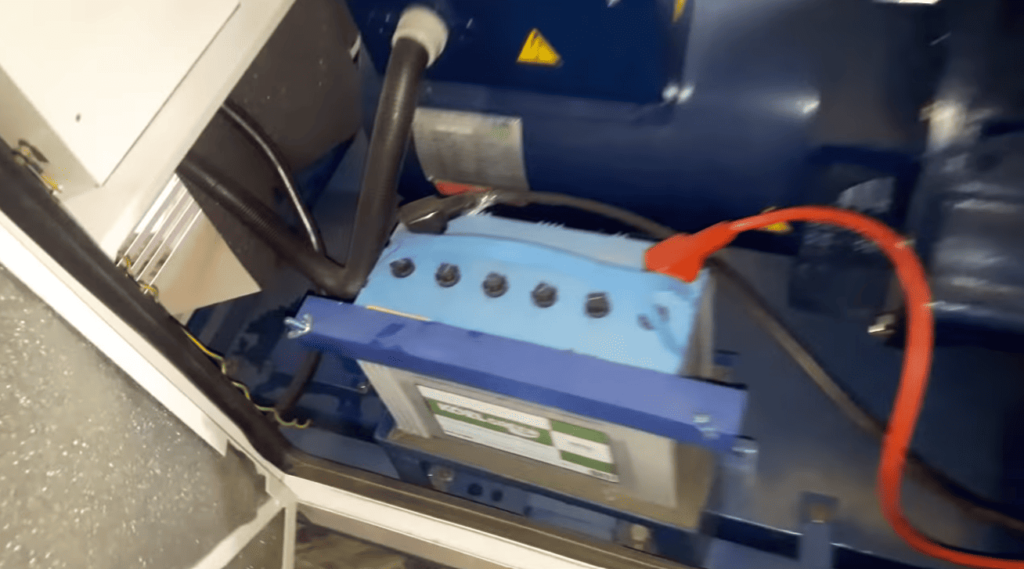
Battery Maintenance and Safety Considerations
To ensure optimal performance and prolong the lifespan of batteries used in generators, it is crucial to follow proper maintenance practices and adhere to safety guidelines:
Regular Inspection and Cleaning
Inspect batteries periodically for signs of corrosion, loose connections, or damage. Clean the terminals using a battery terminal cleaner and apply a protective coating to prevent further corrosion.
Adequate Ventilation
Generators, especially those utilizing lead-acid batteries, require proper ventilation to dissipate potentially harmful gases released during the charging process. Ensure the generator is placed in a well-ventilated area, preferably outdoors or in a well-ventilated enclosure.
Battery Charging and Discharging
Follow the manufacturer's guidelines for charging the batteries. Overcharging or undercharging can significantly affect battery performance and lifespan. Additionally, avoid deep discharges as they can lead to irreversible damage to the batteries.
Temperature Considerations
Extreme temperatures can impact battery performance. Avoid exposing the generator and batteries to extreme heat or cold, as it can shorten the battery life and affect overall generator performance.
Battery Replacement
Monitor the battery's condition regularly and replace it when necessary. Over time, batteries may lose their capacity to hold a charge or show signs of deterioration. Timely replacement ensures reliable operation during critical power situations.
How to charge a Generator Battery
To charge a generator battery, follow these steps:
- Prepare the Environment: Ensure you are in a well-ventilated area with good airflow. Make sure there are no flammable materials nearby and keep the area clean and free from debris.
- Safety Precautions: Put on protective gloves and safety glasses to prevent any accidental contact with battery acid or sparks.
- Turn off the Generator: Before charging the battery, turn off the generator and disconnect it from any power source.
- Access the Battery: Locate the battery compartment on the generator. Depending on the model, you may need to remove a cover or access panel to reach the battery.
- Identify the Battery Terminals: Identify the positive (+) and negative (-) terminals on the battery. They are usually labeled or color-coded. The positive terminal is usually red, while the negative terminal is black.
- Connect the Charger: Connect the charger cables to the corresponding terminals on the battery. Connect the positive charger cable to the positive terminal and the negative charger cable to the negative terminal. Ensure a secure and tight connection.
- Set the Charger Settings: Set the charger to the appropriate charging mode for your battery type. Follow the charger manufacturer's instructions for selecting the correct settings. It is important to choose the appropriate voltage and charging mode to avoid overcharging the battery.
- Plug in the Charger: Plug the charger into a power outlet. Make sure the charger is properly grounded.
- Charging Process: The charger will start supplying the required charging current to the battery. Allow the battery to charge for the recommended duration as per the charger manufacturer's instructions. Charging times can vary depending on the battery capacity and charger specifications.
- Monitor the Charging: Regularly check the charger and battery during the charging process. Ensure that the charger is functioning properly and the battery is not overheating. If you notice any unusual behavior or signs of battery damage, stop the charging process immediately and consult a professional.
- Charging Completion: Once the battery is fully charged, unplug the charger from the power outlet. Disconnect the charger cables from the battery terminals, starting with the negative (-) cable first, then the positive (+) cable.
- Secure the Battery: Ensure the battery connections are tight and secure. Replace any covers or access panels that were removed to access the battery.
By following these steps and adhering to safety guidelines, you can successfully charge your generator battery and maintain its optimal performance.
Generator Battery FAQs
Do all generators require batteries?
No, not all generators require batteries. Generators can be classified into two main types: battery-start generators and manual-start generators. Battery-start generators rely on batteries to initiate the startup process, while manual-start generators require manual pulling or an external power source to start the engine.
Q: Why do generators need batteries?
Generators need batteries for several reasons. Batteries are crucial for starting the generator by providing the initial electrical energy to turn the engine's crankshaft. Additionally, batteries power the control panel and electronic components of modern generators, ensuring uninterrupted monitoring and control.
What types of batteries are commonly used in generators?
The most commonly used types of batteries in generators are lead-acid batteries and lithium-ion batteries. Lead-acid batteries include flooded lead-acid batteries, which require periodic maintenance, and sealed lead-acid batteries, which are maintenance-free. Lithium-ion batteries offer higher energy density, lighter weight, and longer lifespan compared to lead-acid batteries.
Are lead-acid batteries or lithium-ion batteries better for generators?
The choice between lead-acid batteries and lithium-ion batteries depends on specific requirements and preferences. Lead-acid batteries are more affordable and widely available, making them a popular choice. On the other hand, lithium-ion batteries offer advantages such as higher energy density, lighter weight, faster charging times, and longer lifespan. They are particularly suitable for portable generators and applications where clean and stable power output is crucial.
What kind of battery does a Generac generator use
Generac generators commonly use lead-acid batteries for their operation. Lead-acid batteries are reliable, affordable, and widely available, making them a suitable choice for Generac generators. It is important to consult the specific model and manufacturer's recommendations for the compatible battery type and specifications for your Generac generator.
What kind of battery does a Honda generator use
Honda generators typically use lead-acid batteries for their operation. Lead-acid batteries are a common choice for various generator brands, including Honda, due to their affordability, reliability, and wide availability. However, it is essential to refer to the specific model and consult the manufacturer's recommendations to ensure the appropriate battery type and specifications for your Honda generator. Following the manufacturer's guidelines will help maintain optimal performance and ensure compatibility with the generator's charging system.
How should I maintain and care for the batteries in my generator?
Proper maintenance is essential for optimal battery performance. Regularly inspect the batteries for corrosion, loose connections, and damage. Clean the terminals using a battery terminal cleaner and apply a protective coating to prevent further corrosion. Follow the manufacturer's guidelines for charging and avoid overcharging or deep discharges. Ensure proper ventilation for lead-acid batteries and protect the batteries from extreme temperatures. Monitor the battery's condition and replace it when necessary.
Can I use any type of battery in my generator?
It is recommended to use the battery type specified by the generator manufacturer. Different generators have specific requirements and compatibility with certain battery types. Using the recommended battery ensures optimal performance and compatibility with the generator's charging system.
How long do generator batteries typically last?
The lifespan of generator batteries can vary depending on factors such as battery type, usage patterns, maintenance, and environmental conditions. Generally, lead-acid batteries have a lifespan of 3 to 5 years, while lithium-ion batteries can last 5 to 10 years or more, depending on usage and care.
Can I replace the battery in my generator myself?
It is possible to replace the battery in your generator yourself, but it is recommended to follow the manufacturer's guidelines and instructions. Some generators may require specific procedures or precautions during the battery replacement process. If you are unsure, it is best to consult the manufacturer or seek professional assistance to ensure proper installation and avoid any potential issues.
Conclusion
While generators themselves don't solely rely on batteries for their operation, batteries play a crucial role in initiating the startup sequence and powering the control panel and electronic components. Lead-acid batteries, including flooded and sealed types, are commonly used due to their affordability and reliability. However, lithium-ion batteries are gaining popularity for their lightweight design and improved performance. Proper maintenance, adherence to safety guidelines, and timely battery replacement are essential to ensure the longevity and reliable operation of generators. Understanding the role and types of batteries used in generators empowers users to make informed decisions when it comes to backup power solutions.

